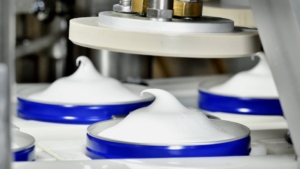Pro-apoptotic protein blocks autoimmunity
A US-EU research team has found that a class of compounds that promote tumour cell death can also limit autoimmunity.
John Rizk discovered that the SMAC protein (Second mitochondria-derived activator of caspase) besides triggering cancer cell apoptosis have a second important function. SMACs are known to promote apoptosis by binding to IAP (inhibitor of apoptosis) proteins and targeting them for degradation, thus sensitizing cancer cells to death-inducing stimuli. Various small molecules that bind to and inhibit IAPs in cells, referred to as SMAC mimetics, are currently in clinical trials as cancer therapeutics because they sensitize the cells to TNF ?lpha-induced cell death. SMAC mimetics also synergize with immune checkpoint inhibitors to promote durable tumor immunity in mice.
Using a multiomics approach, Rizk et al. found that SMAC mimetics can also alter the differentiation of immune cells in vitro, leading to a decrease in the number of TH17 cells, which produce the proinflammatory cytokine IL-17. In a mouse model of multiple sclerosis, which is thought to be driven by TH17 cells, SMs reduced the production of IL-17 and the severity of disease symptoms. The authors suggest that SMAC mimetics may have therapeutic activity in other TH17 cell-driven autoimmune diseases.




 Beiersdorf
Beiersdorf